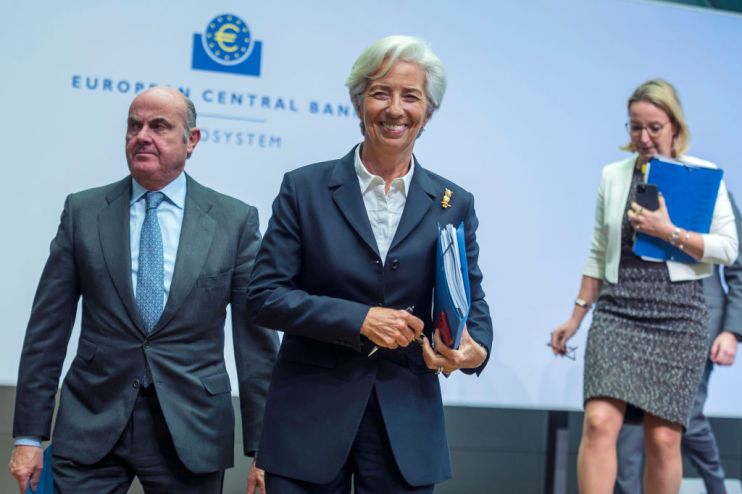ECB launches major policy review as it holds rates

The new European Central Bank (ECB) president Christine Lagarde has launched a major policy review at the Eurozone institution that could change its central aims.
It came as the ECB’s governing council kept interest rates on hold at a record-low level and maintained the Bank’s massive bond-buying programme in a bid to inject life into the struggling euro area economy in 2020.
Lagarde’s strategic review is the first since 2003 and will delve into a number of key issues ranging from the inflation target to tackling climate change.
The review could change the ECB’s main goal, which is to get inflation to below, but close to, two per cent.
In the press conference following the decision, Lagarde said: “We will not leave any stone unturned and how we measure inflation is clearly something we need to look at.”
A rethink has in part been prompted by the stubbornly low inflation of recent years. The latest reading the latest reading in November came in at an anaemic one per cent despite years of low rates and “quantitative easing” bond-buying.
Lagarde said climate change was an “important matter” to look at. The issue will be hotly debated, as some governing council members such as Germany’s Jens Weidmann oppose more radical measures like attempting to redirect bond-buying towards green goals.
Rock-bottom rates
Alongside the announcement of the review, the ECB held its deposit rate at minus 0.5 per cent and its main refinancing rate at zero per cent. On bond-buying, it said: “The governing council will continue to make net purchases… at a monthly pace of €20bn [£16.9bn].”
Paul Donovan, chief economist at UBS Wealth Management, said the review will be closely watched for signs of the EU’s approach to rates. “Negative interest rates do not really work in the longer term,” he said. “Investors will want to know if the ECB will reflect that in its review.”
Interest rates are at their lowest-ever point as the Bank strives to kickstart the Eurozone economy. The IMF has predicted that the euro area grew 1.2 per cent in 2019, the slowest rate since the sovereign debt crisis in the early 2010s.
In her press conference following the decision, Lagarde said things had become marginally better since the last meeting. “Incoming economic data and survey information point to some stabilisation in euro area growth dynamics,” she said.
She said the risks to the Eurozone’s outlook “have become less pronounced as some of the uncertainty surrounding international trade is receding”, in a reference to the “phase one” US-China trade deal struck last week.
The negative deposit rate means banks are charged for keeping their money in the ECB’s digital vaults. It is designed to encourage banks to lend their cash but has prompted protests from major Eurozone lenders who have said it hurts their profitability.
Earlier today, Deutsche Bank chief executive Christian Sewing said negative rates were hurting society, damaging banks and increasing inequality.
The ECB said rates will stay “at their present or lower levels until it has seen the inflation outlook robustly converge to a level sufficiently close to, but below, per cent”.